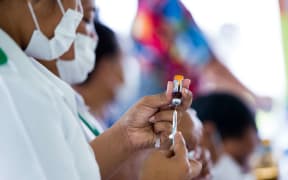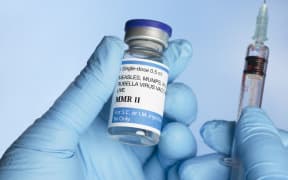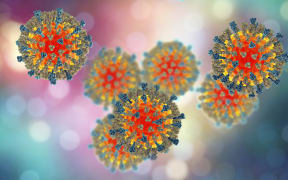
(File photo.) Photo: 123rf.com
Health officials in Waikato say that two children who were thought to have measles are not infected.
Over the weekend, Te Whatu Ora reported one confirmed case and another probable one in young children, raising concerns about community transmission.
However, the health agency confirmed today that further testing had shown both cases in Waikato were negative.
National Public Health Service regional clinical director Dr William Rainger said, although rare, false-positive tests could happen.
"The first test came through positive. What we always do is follow up with a confirmatory test and in this case it's come back negative.
"That does happen sometimes, but it's not common at all."
The initial symptoms of measles could be similar to Covid-19 or a common cold, beginning with fever, cough, runny nose and sore, red eyes.
Between two and four days later, a rash appears, usually beginning on the face and spreading down the body to the arms and legs, lasting for up to one week.
Rainger said the children were recovering well from their illness.
"I would like to acknowledge and thank the affected whānau. They did the right thing by calling Healthline for advice as soon as they were concerned for their children's welfare.
"Through this family's quick thinking and full cooperation from them and identified close contacts, health services were able to manage the situation efficiently and reduce the risk for others."
The updated test results meant there were no known cases of measles in the community, which was "fantastic news", he said.
"We are still concerned that the vaccination rates in the community are not high enough to prevent an outbreak, so we are continuing to be very, very vigilant and we ask people in the community to do the same," Rainger said.
"With New Zealand being at high risk of a measles outbreak and our vaccination rates too low to prevent that from happening, our national and regional public health service teams must take any suspected case of measles very seriously."
Measles was a serious and highly contagious illness, which can affect adults as well as children and babies, he said.
"The illness spreads easily among people who are not immunised.
"The best protection against measles is two doses of the measles, mumps and rubella (MMR) vaccine - this provides lifelong protection in 99 percent of people."
The vaccine is free for anyone aged 18 and under, and those over the age of 18 who are eligible for free healthcare in New Zealand.
"The fact that further testing indicates the child does not have measles after all, does not diminish the importance and the effectiveness of the actions undertaken by our public health officials over the past few days," Rainger said.
Anyone with symptoms of measles should stay home and call Healthline on 0800 611 116 for free advice and public health support.






